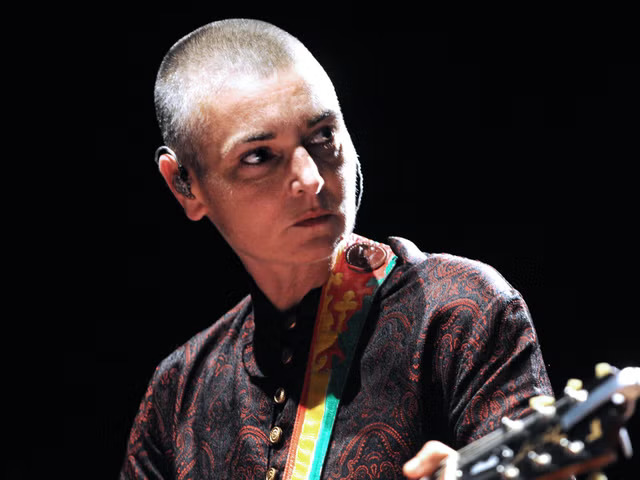The world mourns the loss of the iconic Irish singer and activist, Sinéad O’Connor, who has died at 56. Her family delivered the heartbreaking news of her passing ‘with great sadness,’ acknowledging the devastating impact on her family and friends. As of now, the cause of death remains undisclosed.
Sinead O’Connor’s legacy will endure as the iconic Irish singer who beautifully transformed Prince’s ‘Nothing Compares 2 U’ into a poignant anthem for the broken-hearted.
With a simple yet powerful video shot amidst the winter chill at a remote park outside Paris, she effortlessly conveyed the essence of love and loss in her song, evoking genuine and raw emotions.
Her intense gaze into the camera accentuated her mesmerizing elfin features, and the unique shaven head added to her compelling allure. Through her authentic tears, she bared the very essence of her life and soul.
Throughout her public appearances and personal moments, this distinctive quality exemplified her acclaimed, diverse, and occasionally polarising trajectory in both her professional endeavors and personal experiences.
Throughout her career, spanning from the 1980s, she has graced the music industry with 10 remarkable solo albums, including the immensely successful ‘I Do Not Want What I Haven’t Got’ and the 2014 masterpiece ‘I’m Not Bossy, I’m the Boss.’
Her musical journey traverses various genres, from the timeless charm of traditional Irish tunes to the soulful expressions of blues and reggae.
Read also: Iconic British Singer Jane Birkin Passes Away In Paris At 76
Sinead Marie Bernadette O’Connor was born in 1966 in County Dublin, being the third child among five siblings, and her upbringing was marked by the hardship of her parents’ acrimonious divorce.
In a interview in 2013, Sinead O’Connor candidly revealed that during her childhood, she struggled with kleptomania, a coping mechanism she adopted to deal with the severe abuse she endured, which she described as ‘sexual, physical, psychological, spiritual, emotional, and verbal’.
Prior to finding her calling in music, Sinead O’Connor faced a series of arrests, leading to her eventual placement in a church-operated correctional facility. During her time there, a compassionate nun recognized her potential and encouraged her to explore music, even providing her with a guitar as a means of support.
Starting as a street busker in Dublin, O’Connor’s musical path led her to perform in bustling pubs, where the necessity to rise above the din fueled the growth of her commanding and charismatic voice.
At the age of 20, heavily pregnant, she relocated to London and accomplished the production of her debut album. An unexpected request from her record company to tone down her image ended up backfiring, solidifying her punk style.
‘They took me out to lunch and said they’d like me to start wearing short skirts and boots, grow my hair long and do the whole girl thing. What they were describing was actually their mistresses,’ she told the Daily Telegraph.
In the midst of her experiences, she had an encounter with a Greek barber and, without hesitation, asked him to shave her head.
‘He didn’t want to do it, he was almost crying,’ she recounted. ‘I was delighted with it.’
Her 1987 debut ‘The Lion and the Cobra’ became a cult sensation, followed three years later by ‘I Do Not Want What I Haven’t Got’ which contained her breakthrough hit.
‘I suppose I’ve got to say that music saved me,’ she said in 2013. ‘It was either jail or music. I got lucky.’
Her electrifying performances at sold-out concerts propelled her to stardom worldwide, as her striking appearance and unmistakable voice captivated audiences around the globe.

